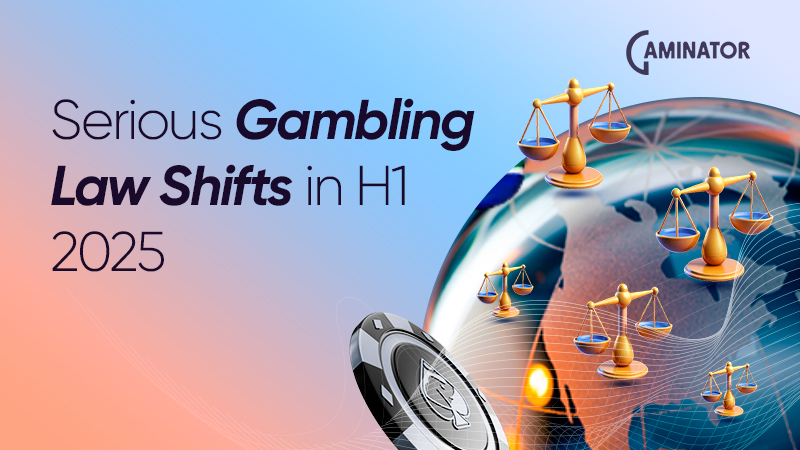Serious Gambling Law Shifts in H1 2025

Africa
Key changes on the continent:
- Ghana made a quick reversal by repealing its controversial 10% tax on winnings after the measure drove bettors to unlicensed websites.
- Kenya reduced the excise duty on betting from 15% to 5% and introduced a crackdown on crash games, as well as prohibited influencer promotions.
- In Nigeria, fresh reforms introduced a dual tax model (5% on residents’ winnings and 15% on non-residents) alongside an excise tax on all interactive activity.
- South Africa’s proposed Remote Gambling Bill aims to unify the fragmented provincial market under one national licence and impose new ISP blocking obligations.
Asia
Recent local regulatory turbulence:
- India’s Supreme Court paused the collection of over ₹1.12 lakh crore ($1.35 billion) in retrospective GST claims from gambling firms.
- India also saw a new collaboration between regulators and the Advertising Standards Council to block digital ads from illegal projects.
- The Philippines made a decisive move to ban all offshore iGaming managers (POGOs) and provided local companies a lifeline with a reduced 30% GGR tax.
- The UAE hinted at entering the gambling space, with job listings from The Game LLC that suggest the launch of licensed betting and casino platforms.
Europe
Legislative updates in the gambling hotspot:
- Germany granted permission for online blackjack and roulette under the state monopoly, with 25% taxes on GGR.
- Ireland’s Gambling Regulation Act introduced a tiered licensing system set to roll out later this year, while banks began preparing card-blocking mechanisms.
- Italy’s new licensing regime demands €7 million per licence with a 3% GGR fee and may soon replace its strict ad ban.
- Lithuania increased the gambling age to 21 and outlawed most advertisements from July, with an allocation of €4 million in media compensation.
- Malta’s protective stance toward local operators led to EU infringement procedures.
- The Netherlands advanced plans for universal deposit limits and promotional bans, and granted a new enforcement force to the KSA.
- Spain fined 13 unlicensed websites €5 million each and penalised Codere for targeting minors.
- Sweden plans to ban credit card use by April 2026 and has announced the closure of its last state-owned casino.
- The UK capped slot stakes, banned cross-product promotions, and imposed a new statutory levy.
US and Oceania
Further expansion and control were introduced in regions:
- The Dominican Republic proposed a new gaming regulator (DGJA) to substitute DCJA and installed a 10% GGR tax or RD$5 million ($83 thousand) flat monthly fee.
- In the US, New York shut down 26 sweepstakes casinos and passed SB 5935 to ban such models entirely, with steep fines for violations.
- New Zealand revealed plans to introduce a licensed iGaming market by 2026, with intentions to issue up to 15 licences and implement strict measures to reduce gambling harm.
South America
Impressive legal changes in the area:
- Brazil finally legalised sportsbooks as well as online casinos under Law 14,790, which introduced an 18% GGR tax with an R$30 million ($5 million) licence.
- Peru followed with the registration of 60 platforms through a digital system that has reportedly cut illegal activity by 40% and collected over S/5 million ($1.4 million) in tax revenue within the first month.
- In Paraguay, Law 7348 ended the national monopoly and empowered the Conajzar regulator to invite private operators into a clearer framework.
- Curacao licensed more than 30 brands and banned ads aimed at vulnerable audiences.
The first-half sprint of 2025 confirms that the era of loosely regulated markets is coming to an end. While some countries ease taxation or open new verticals, others introduce tougher controls and higher compliance thresholds.
Check the information used to contact us carefully. It is necessary for your safety.
Fraudsters can use contacts that look like ours to scam customers. Therefore, we ask you to enter only the addresses that are indicated on our official website.
Be careful! Our team is not responsible for the activities of persons using similar contact details.



